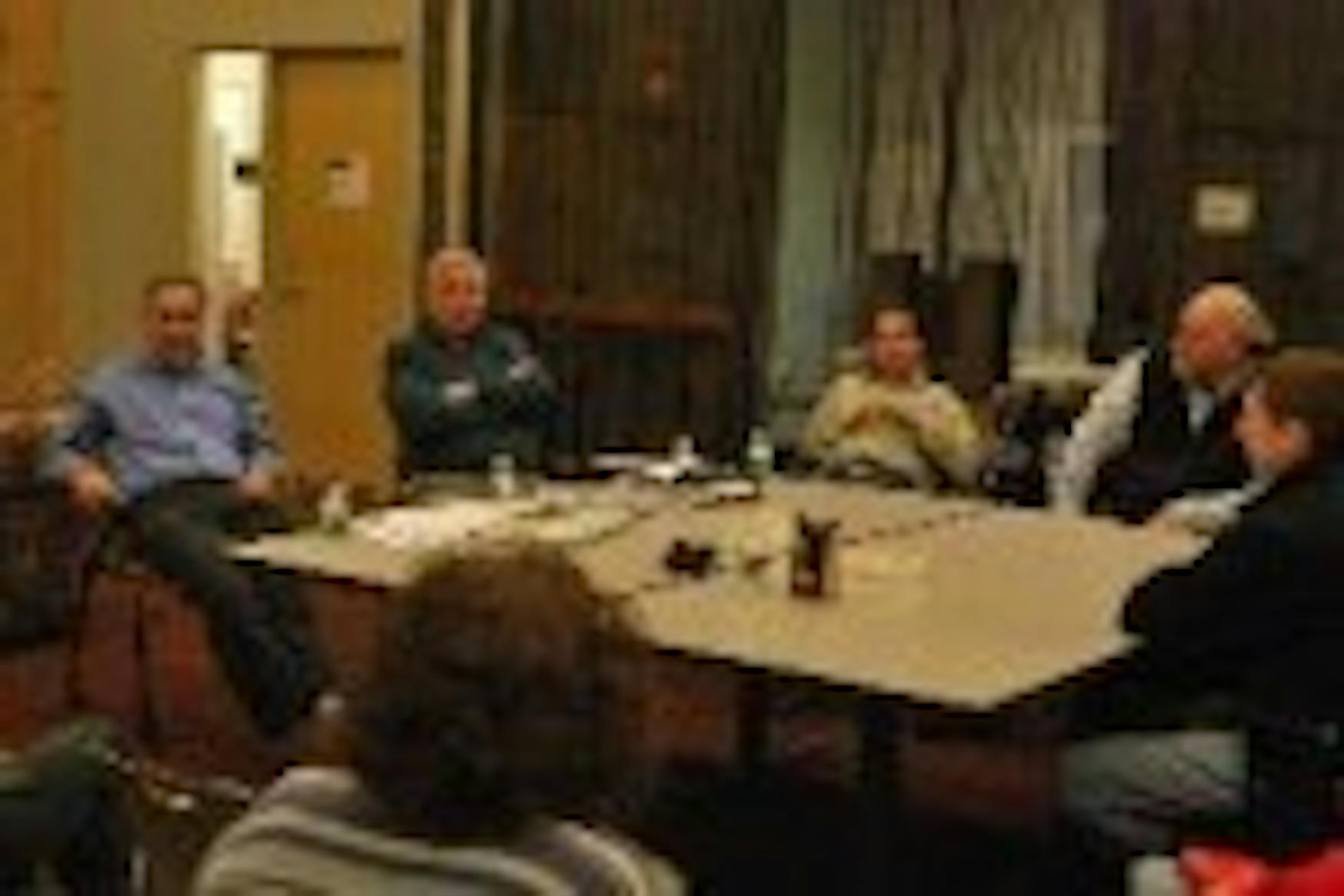Event fosters discussion of Goldstone report before justice's visit
Daniel Terris, director of the International Center for Ethics, Justice and Public Life, and Prof. Ilan Troen (NEJS) led a discussion last Sunday about the controversial report by the United Nations Fact Finding Mission on the Gaza Conflict, which was presented to the U.N. Human Rights Council on Sept. 29.Sunday's forum was a pre-event held in the lead-up to Thursday's event, "The Challenge of the UN Gaza Report," at which Justice Richard Goldstone, who led the U.N.'s fact-finding mission, will discuss the final report with former Israeli ambassador to the United States Dore Gold.
Attended by around 30 Brandeis students and community members, the open-ended discussion focused on providing a basic understanding of the 600-page U.N. mission's report and the reasons it has engendered so much controversy in the international community.
In an interview with the Justice after the event, Terris said that he thought it was good to have as many opportunities as possible for Brandeis students to explore the issues involved in the Goldstone report.
"Having an opportunity in a quiet setting to exchange ideas and exchange information is valuable in itself," he said.
When Goldstone, who has a long-standing relationship with Brandeis and is currently on the advisory board of the International Center for Ethics, Justice and Public Life, first agreed to head the U.N.'s mission to investigate the state of human rights in the midst of the Gaza conflict, he refused to operate under the original U.N. mandate, Terris said at the event.
The original mandate called for an investigation focused solely on Israel's actions regarding the conflict in Gaza; Goldstone articulated his desire to investigate human rights violations on both sides of the conflict.
Despite this initial ideology, according to Troen, when the final report of the four-member mission was published, Israel took issue with the "astounding" one-sidedness of the report, which details 36 individual incidents of Israeli violations agains the Palestinians.
Terris said that he has heard the full range of opinions regarding the report and thinks that the entire spectrum is represented on the Brandeis campus, from those who strongly support Israel and think that the report is "out of line" to those who are "harshly critical of Israel and have a variety of different opinions on the report."
Troen said that the Brandeis community finds itself in a unique situation because, until now, Israel has steadfastly refused to engage Goldstone regarding the report. Thursday night will be the first time that Goldstone will discuss the report with someone, Dore Gold, who, even if he no longer represents official Israeli policy, has worked in Israeli government and represents an educated and informed Israeli opinion on the matter, Troen said.
"I think that students are very curious, want to know and have yet to engage themselves with the massive material, except second- and third-hand," said Troen when discussing the importance of Sunday's discussion in a later interview. "So how does one cope with the mass of contradictory opinions that people bring to this event without having engaged in the material oneself?" Troen asked.
When asked why he thought it was important that people who planned on attending the event on Thursday had an understanding of the report and its effects, Troen said, "I think that issues are so complex for everybody because they also reflect on the role America plays in the world, not only just in terms of the Arab-Israeli conflict but how America conducts itself in conflicts where there are civilians proximate. [The Arab-Israeli conflict] may be the issue that illuminates much else."
Terris said that if people want to get a true sense of the methodology and ideology behind the report they should read some of the report's observations and conclusions regarding specific instances of human rights violations.
He said that these will give a good sense of how the mission went about conducting research and what kind of conclusions it drew based on that research.
Asher Bublick '12 said that he had attended the event on Sunday because "both [Terris and Troen] are known to be well educated on the topic, and . I thought it would be a really good opportunity to learn more about the report and hear the opposing opinions."
"It was a really good format of speaking on the topic because you were able to see both sides and go back and forth," said Bublick.
- Nashrah Rahman contributed reporting.



Please note All comments are eligible for publication in The Justice.